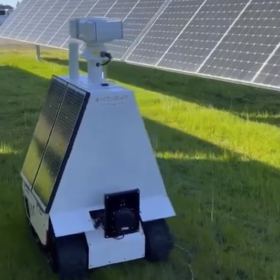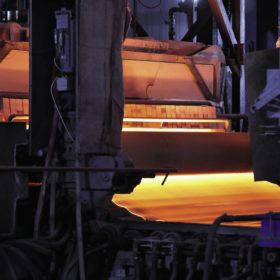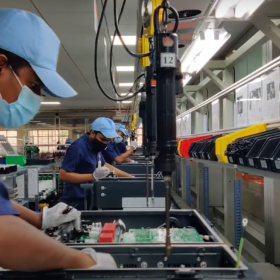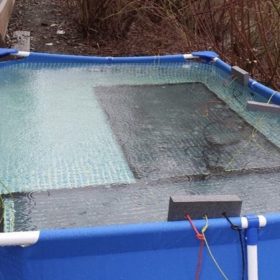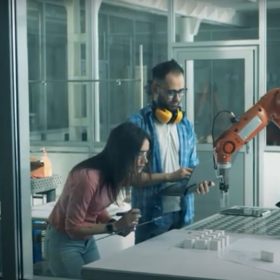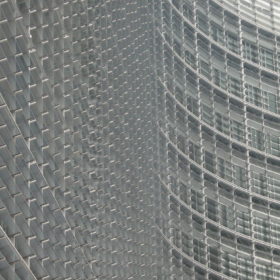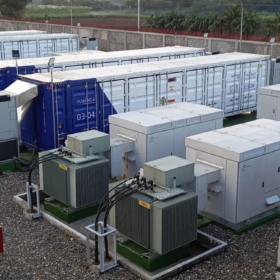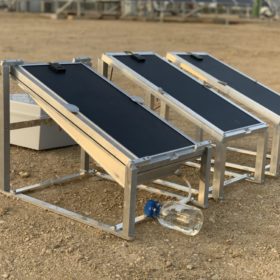Fully autonomous robot for solar O&M
OnSight Technology has developed a tele-operated vehicle to clean solar arrays. It is equipped with a radiometric thermal imaging camera and an optical zoom camera backed by artificial intelligence. It has a range of 12 hours and a speed of 1.6 km per hour.
The long read: Indian solar manufacturing sector is set for a boom
The Indian solar manufacturing sector is set for a boom in the coming years, due to the country’s enormous appetite for solar and policy support in the form of import duties and local production incentives. On the technology side, a few players are already looking at n-type TOPCon cells, but their embrace by the majority has been slow to materialize, due to the high investment costs that are required. This ensures that the build-out of new PERC capacity will continue over the short term.
Sungrow ramps up Indian solar inverter factory to 10GW/annum
The Chinese solar inverter manufacturer, which established its factory in India in 2018, has expanded the India fab capacity to 10GW/annum to serve different customer segments, including residential, commercial & industrial, and utility-scale—both locally and globally.
Submersing modular raft for floating photovoltaics
Developed by a Dutch consortium, the Hide and Shine Floating Solar (HAS FPV) technology is claimed to be extremely resistant to storms and harsh weather conditions. The modules can be submerged totally or partially and, in case of a severe storm, they can be submerged up to two meters below the surface.
Exide Industries and China’s SVOLT Energy partner for lithium-ion cell manufacturing in India
The lead-acid battery major will use SVOLT’s technology to manufacture lithium-ion cells in India. It will produce cells across two popular chemistries and three formats out of its proposed multi-gigawatt fab.
The EU plan to drastically ramp renewables to replace Russian gas
The European Commission yesterday announced its intent to remove demand for two-thirds of its Russian gas supply in less than nine months and hugely accelerating the rate of solar deployment is a central part of its radically raised clean energy ambition.
IHS Markit: Battery prices won’t fall until 2024
The London-based analyst has published a series of clean tech predictions for the year which also highlighted the rising proportion of sub-5MW solar projects in the global market, and cheaper clean energy financing costs even as panel prices continue to rise.
India’s solar cell imports rise as domestic module production expands
India imported solar cells worth more than $633 million from April to the end of last year, a figure higher than the value imported during the whole of the 2020-21 fiscal year.
Fully PV-driven system to produce water, electricity, crops
Researchers in Saudi Arabia have fabricated an integrated fully PV-powered system to extract fresh water from the atmosphere. The system uses excess heat from the solar modules to evaporate and condense water that can then be used to grow crops. Part of the water is also used to cool down the solar modules through an active cooling technique.
Swiss manufacturer unveils 500W solar module with 23.2% efficiency
Megasol said the solar module relies on new back-contact technology that is able to reduce internal resistance, ohmic losses and cell spacing.
